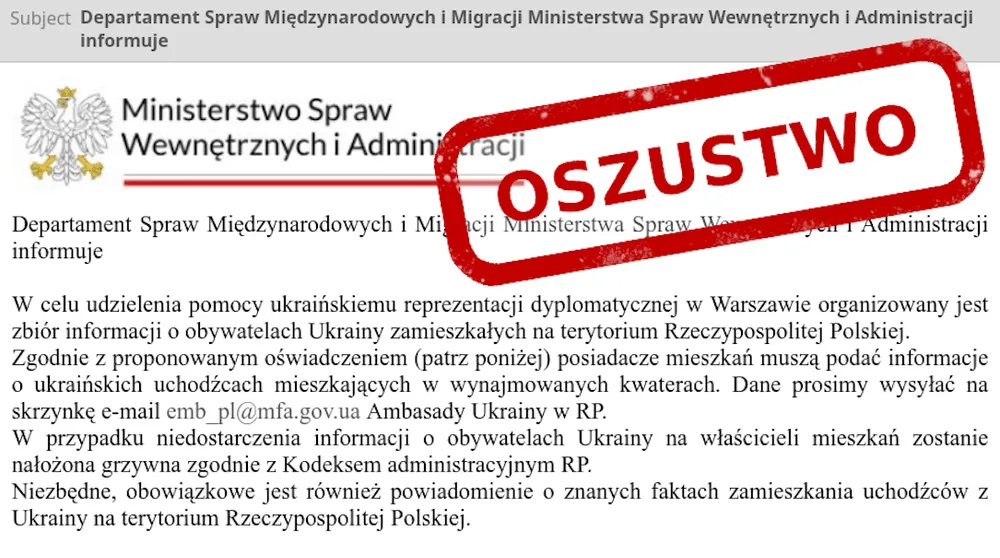Poland, Lithuania and UK warn of data-collection scam against Ukrainian refugees
Ukrainian refugees abroad have become the target of a new campaign aimed at stealing their personal data.
Government officials in Poland, Lithuania, and the UK have warned of fake letters circulating on social media asking hosts of Ukrainian refugees to share personal information about their guests. In some cases, the letters have circulated on paper or via email, too.
The letters are allegedly signed by the British, Polish or Lithuanian governments. They use official logos and government headings.
They are addressed to “refugee hosts” and claim that the Ukrainian embassy requires recipients to hand over the personal data of any Ukrainian men over 18 years old.
Some of the letters also say that refugees should visit the embassy “to specify their personal data individually,” while others threaten foreigners with fines so that they do not ignore messages.
In one of the printed letters found on the streets of Poland, scammers placed a QR code to send information about Ukrainian refugees.
Beyond data collection, another possible explanation is that the scammers want to spread fakes that the Ukrainian authorities are allegedly looking for people of draft age who have fled abroad.
Pro-Russian social media accounts and the Kremlin-backed media quickly picked up the news and spun it as a Ukrainian government plot.
One user posted an image of a fake letter on Twitter and wrote: “So apparently Zelensky and his gang are now searching in the UK for Ukrainian men who fled the war. The UK government is happy to help...”
In Lithuania, scammers also shared a screenshot of a fabricated Facebook post by Vilnius Mayor Remigijaus Šimašiaus promising to detain and search Ukrainians aged 18-65 arriving in Lithuania. “Ukrainians of conscription age must return to Ukraine for military service,” the fake post said.
The Ukrainian embassies in Lithuania and Poland confirmed that the letters requesting information about Ukrainian refugees were fake. The Ukrainian Embassy in the UK was not immediately available for comment.
This is not the first time scammers have spread fraudulent letters abroad. In December, German citizens received letters calling to join Ukraine’s military for a cash reward, while Ukraine's Embassy in Moldova received fake emails warning about mines planted at the complex.
Other Ukrainian embassies across Europe reported in December that they received “bloody packages” containing animal eyes. At the time, Ukraine’s foreign minister blamed Russia for this campaign and said that it was aimed at sowing fear.
Daryna Antoniuk
is a reporter for Recorded Future News based in Ukraine. She writes about cybersecurity startups, cyberattacks in Eastern Europe and the state of the cyberwar between Ukraine and Russia. She previously was a tech reporter for Forbes Ukraine. Her work has also been published at Sifted, The Kyiv Independent and The Kyiv Post.



